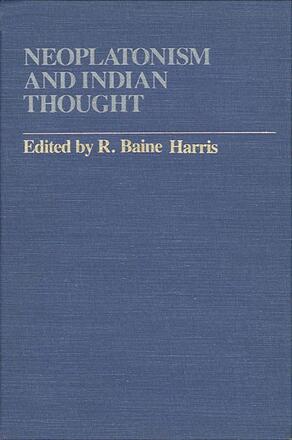Preface
Acknowledgements
Introduction
John R. A. Mayer
Indian Wisdom and Porphyry's Search for a Universal Way
John J. O'Meara
Plotinus and the Upanisads
Lawrence J. Hatab
Proclus and the Tejobindu Upanisad
Laurence J. Rosan
Buddhi in the Bhagavadgita and Psyché in Plotinus.
A. H. Armstrong and R. R. Ravindra
The Plotinian One and the Concept of Paramapurusa in the Bhagavadgita
I. C. Sharma
Phraseology and Imagery in Plotinus and Indian Thought
Richard T. Wallis
Meditative States in the Abhidharma and in Pseudo-Dionysius
David F. T. Rodier
Matter and Exemplar: Difference-in-Identity in Vijnanabhiksu* and Bonaventure
John Borelli
Cit and Nous
Paul Hacker
Matter in Plotinus and Samkara
Francisco García Bazán
Samkara and Eriugena on Causality
Russell Hatton
Union with God in Plotinus and Bayazid
Mohammad Noor Nabi
Advaita Vedanta and Neoplatonism
R. K. Tripathi
The Concept of Human Estrangement in Plotinism and Samkara* Vedanta*
Ramakant Sinari
Plotinus and Sri Aurobindo: A Comparative Study
Pritibhushan Chatterji
The Influence of Indian Philosophy on Neoplatonism
C. L. Tripathi
A Survey of Modern Scholarly Opinion on Plotinus and Indian Thought
Albert M. Wolters
Neoplatonism, Indian Thought, and General Systems Theory
John R. A. Mayer
Some Critical Conclusions
I. C. Sharma
Index
